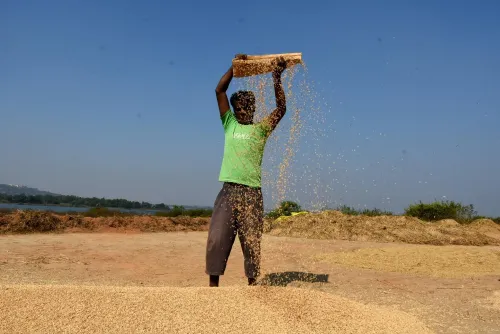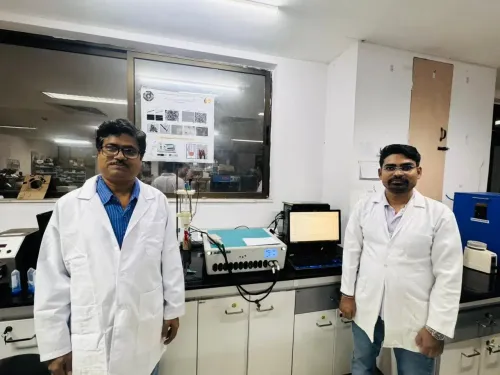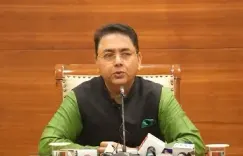Is US President Trump Really Going to Impose 100% Tariffs on Semiconductors and Chips?
Synopsis
Key Takeaways
- 100% tariff on imported semiconductors and chips proposed.
- Exemptions for companies committed to US manufacturing.
- Aims to reduce reliance on overseas supply chains.
- Major tech companies like Apple and Nvidia could be significantly affected.
- Current 25% import duty on Indian goods also in effect.
New Delhi, Aug 7 (NationPress) US President Donald Trump has unveiled intentions to enact a 100 percent tariff on every imported semiconductor and chip, aiming to bolster domestic manufacturing. During a discussion in the Oval Office with Apple CEO Tim Cook, he stated, “A 100 percent tariff (will be applied) on all chips and semiconductors entering the US. However, if you've committed to manufacturing (in the US) or are already in the process of doing so, as many companies are, the tariff will not apply.” Companies like Apple, Nvidia, and Taiwan Semiconductor Manufacturing Company (TSMC) that have made substantial investments in US operations may benefit from this exemption if Trump implements his tariff proposal.
This initiative is designed to encourage foreign technology firms to either set up or expand their manufacturing bases within the United States, thus diminishing dependence on international supply chains. Trump emphasized that firms like Apple could take advantage of the exemption due to their growing investments in domestic production.
President Trump remarked, “The positive news for companies such as Apple is that if you are manufacturing in the US or have pledged to do so, there will be no fee.”
The proposed 100 percent tariff will impact all imported semiconductors and chips, significantly affecting primary suppliers in Taiwan, South Korea, and Singapore. Nevertheless, aside from Apple’s $100 billion and TSMC’s $165 billion investment in US chip manufacturing, Nvidia and GlobalFoundries have also confirmed their plans to produce some of their items within the U.S.
Additionally, the US government has initiated a 25 percent import duty on goods from India, effective from August 7. President Trump has further threatened to escalate tariffs by another 25 percent, effective August 27, citing India's purchases of crude oil and military equipment from Russia.
In response, Prime Minister Narendra Modi stated that the nation would never compromise on the welfare of farmers and fishermen.









